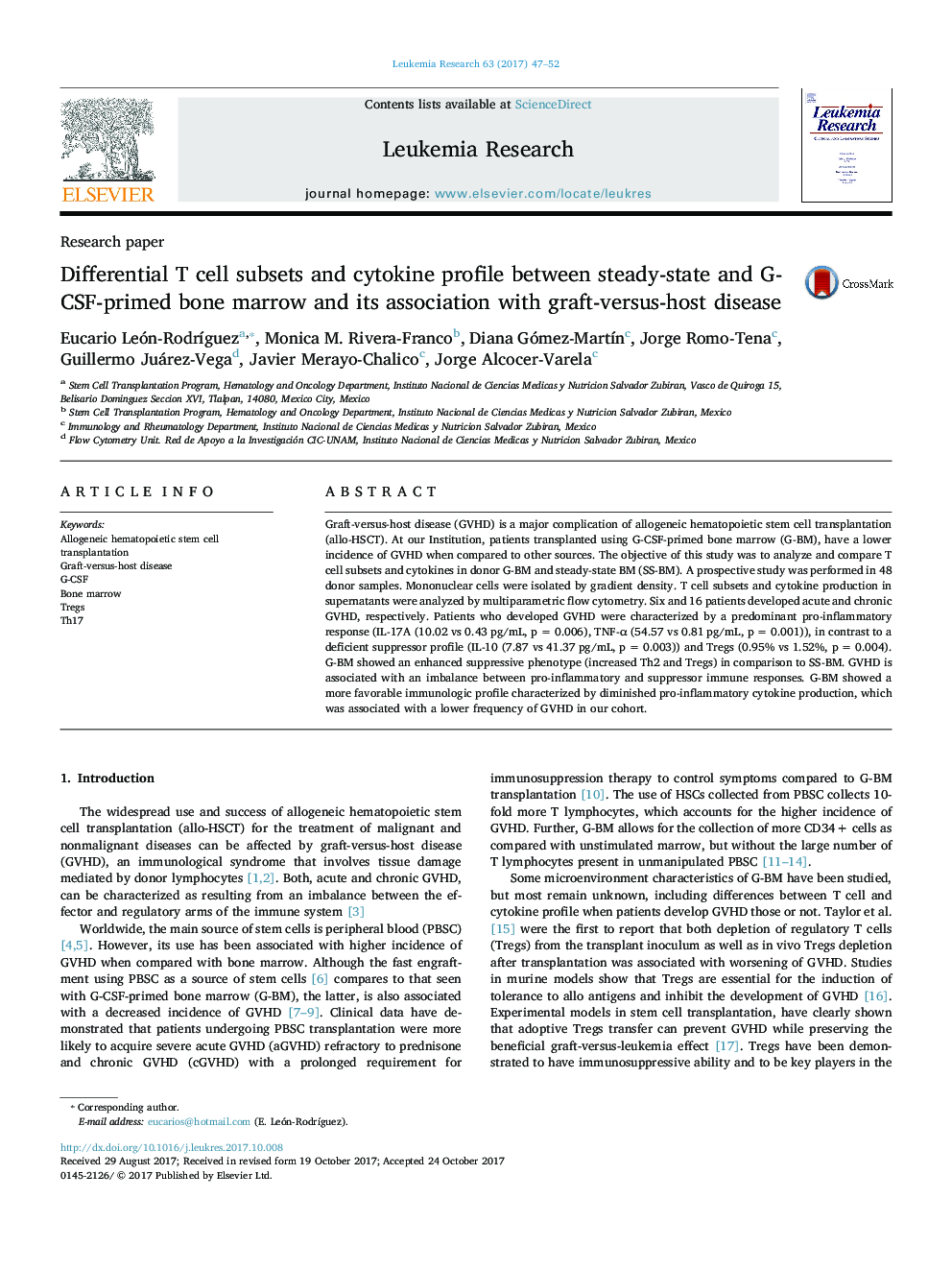| Article ID | Journal | Published Year | Pages | File Type |
|---|---|---|---|---|
| 8453424 | Leukemia Research | 2017 | 6 Pages |
Abstract
Graft-versus-host disease (GVHD) is a major complication of allogeneic hematopoietic stem cell transplantation (allo-HSCT). At our Institution, patients transplanted using G-CSF-primed bone marrow (G-BM), have a lower incidence of GVHD when compared to other sources. The objective of this study was to analyze and compare T cell subsets and cytokines in donor G-BM and steady-state BM (SS-BM). A prospective study was performed in 48 donor samples. Mononuclear cells were isolated by gradient density. T cell subsets and cytokine production in supernatants were analyzed by multiparametric flow cytometry. Six and 16 patients developed acute and chronic GVHD, respectively. Patients who developed GVHD were characterized by a predominant pro-inflammatory response (IL-17A (10.02 vs 0.43 pg/mL, p = 0.006), TNF-α (54.57 vs 0.81 pg/mL, p = 0.001)), in contrast to a deficient suppressor profile (IL-10 (7.87 vs 41.37 pg/mL, p = 0.003)) and Tregs (0.95% vs 1.52%, p = 0.004). G-BM showed an enhanced suppressive phenotype (increased Th2 and Tregs) in comparison to SS-BM. GVHD is associated with an imbalance between pro-inflammatory and suppressor immune responses. G-BM showed a more favorable immunologic profile characterized by diminished pro-inflammatory cytokine production, which was associated with a lower frequency of GVHD in our cohort.
Keywords
Related Topics
Life Sciences
Biochemistry, Genetics and Molecular Biology
Cancer Research
Authors
Eucario León-RodrÃguez, Monica M. Rivera-Franco, Diana Gómez-MartÃn, Jorge Romo-Tena, Guillermo Juárez-Vega, Javier Merayo-Chalico, Jorge Alcocer-Varela,
